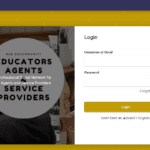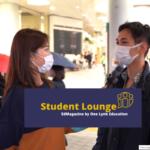
Interview with Thom Kiddle – Hybrid Learning

The Hybrid Learning Mode combines face-to-face and online learning, where each lesson is offered simultaneously in-person and online. During the pandemic, many LTOs were forced to change the way they teach, and the Hybrid Learning Mode was adopted by many.
To get a better understanding of how this change evolved worldwide, a survey was conducted by Sophia Mavridi from de Montford University, Thom Kiddle from NILE, Chris Farrell from CES group and John Glew-O’Leary from IH Manchester. More than 154 LTOs, representing 31 countries, were involved in the research.
We, at EdMagazine, interviewed Thom Kiddle, director of NILE and former head of academic research and educational technology at the Chilean-British University, to get his view on Hybrid Learning and what has emerged from the survey.
Interview with Thom Kiddle
As a professional, with years of experience in language education, what is your opinion on hybrid learning? Is it just a short term solution or will more institutions adopt this method of teaching?
Hybrid learning isn’t a new concept. It’s been around for several years, but mostly in higher education and linked to a desire to give access to content – more transmission-style teaching – and including asynchronous access too. This might bear little relation to the way it’s been adopted and adapted to the language teaching sector in response to the Covid-19 pandemic, with much higher demand on collaboration and interaction between students and teachers and more communication-focused activities in the classroom.
I think the breadth of interest in this mode of learning has been born of necessity, but once we have emerged from that pandemic-driven need, there may well be other drivers which see the level of interest sustained. Personally, I doubt these will be driven by pedagogy, or by teachers, but I can see instances where from a business or resource perspective, it is attractive and effective to look at what a hybrid model could mean for attracting new students, or for managing the available space in bricks-and-mortar classrooms.
How should the institutions overcome/improve the challenges of hybrid learning?
One thing the survey has shown is that there isn’t a single solution for every institution. Much will depend on the scale and whether this is a short-term, stop-gap strategy. Clearly, making the right technological choices is going to affect the quality of learning experience, and this will be directly related to budgets. Many institutions have made changes to the technology used to deliver their hybrid classes upon learning what works and what doesn’t in their own context. One commonality is the need for teacher training and teacher support, and there is a sense that this is developing through peer-to-peer sharing rather than top-down training. When we conducted the survey, and even now, one piece that is missing is a real understanding of the impact on learners, and learning outcomes. Some respondents talk about ‘putting up with it’ while it’s the best solution for the current crisis.
What can the LTOs learn from hybrid learning?
One thing that 2020 has shown is the agility and flexibility of LTOs and particularly teachers, and hybrid learning is a prime example of this learning-on-the-job and responding to change which our sector does very well. I think that LTOs learnt an enormous amount from a rapid transition to online learning, though in the initial ‘emergency response’ phase, that was largely a replication of a classroom in an asynchronous online setting. As we moved into a more creative and innovative period, when LTOs realised that there was a continuing need for online learning, there was a great deal of exploration of the benefits of asynchronous activities and platforms to support this learning. Now that we’re in a consolidation and future-proofing stage, LTOs will be taking stock of the lessons from all of that, and Hybrid Learning will be a part of this for some. Personally, I feel the learning in terms of online education generally has been transformational, and this will be the greatest impact from 2020 on LTOs.
In your opinion, what would be the future of learning a language like?
I think it’s easy to confuse hybrid learning as demanding a new methodology for language learning. For me, language learning beliefs and methodologies are about much more than the mode of engagement with learners, and hybrid learning is just one way of operationalizing those beliefs. If you believe in a text-rich, lexis-driven, guided-discovery approach to language learning, then this should be a greater influence on the methodology behind your activities than the technology in your classroom. I think learners, teachers and organisations alike will see the affordances of some aspects of online learning after what we’ve all been through this year, and particularly the asynchronous opportunities. We know that learning a language takes time, and it is crucial to provide rich learning opportunities in that time that’s spent outside the classroom. I’d be wary of any claims that learning will be 100% hybrid, or 100% online, or driven by VR. I think humans genuinely like learning from other humans in social settings and much of that will return.
Has your institution adopted hybrid learning?
No. Our model of short-intensive courses for language teachers primarily coming from outside the UK doesn’t work well when no-one can travel for those courses. So although we’ve been running online teacher education courses for six years, and continue to do so very successfully, we haven’t had the opportunity to combine that with students in our physical classrooms yet. It’s one of the reasons why we were so keen to set up this survey, and learn from our peers in the educational community, and why we brought in organisations like CES and IH Manchester who were delivering hybrid classes, to support the survey design and data analysis.
What are your final thoughts about Hybrid Learning?
The benefits and challenges are evident in the survey report, I think, and best practices in terms of activities, teacher and learner roles, and classroom management are still to emerge. However, the more we see this as a peer-to-peer development opportunity among LTOs, the broader our understanding and solutions will be.























